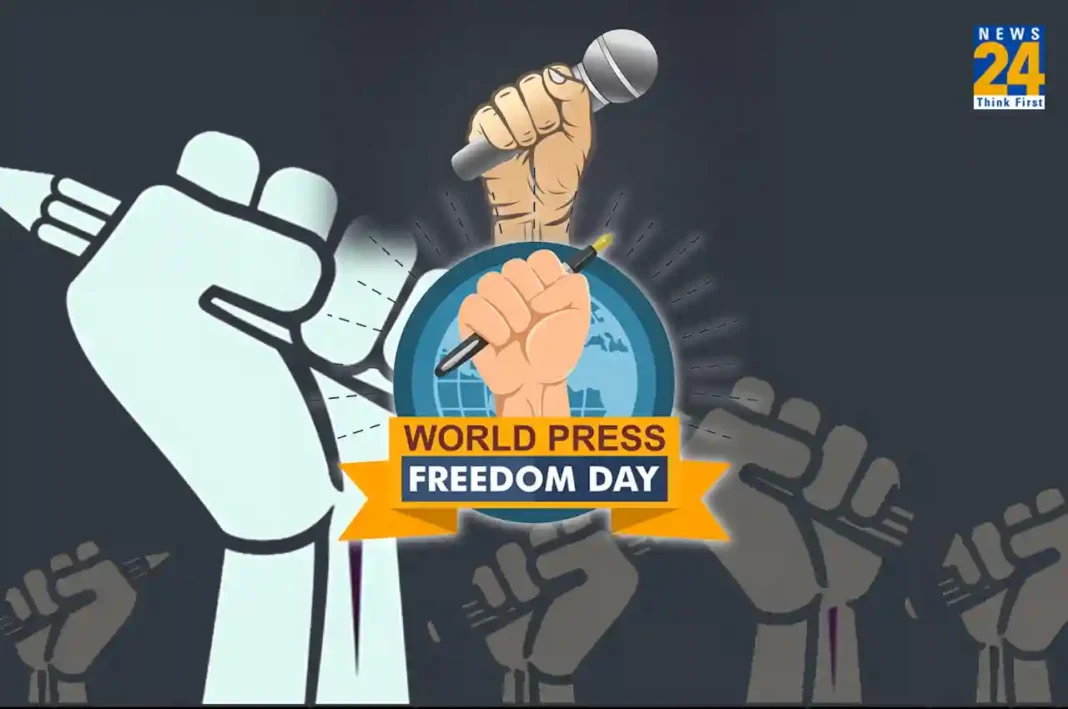On the occasion of World Press Freedom Day, the Pakistan Federal Union of Journalists (PFUJ) urged the Shehbaz government to protect the rights of media personnel and journalists amid the rising human rights violations against media in Pakistan. In a joint statement issued on Monday, PFUJ president Shahzada Zulfiqar and secretary-general Nasir Zaidi underlined the importance of the freedom of the press, free speech and expression.
“Freedom of the press is the hallmark of any developed and healthy society and it cannot be compromised,” reported Dawn. This comes after Pakistan has been ranked the fifth most dangerous place for the practice of journalism, according to the International Federation of Journalists (IFJ). According to the media reports, 138 media persons in the country had lost their lives in the line of duty between 1990 and 2020. Expressing concern over the state of media freedom in Pakistan, the PFUJ said: “In at least nine cases, journalists were intimidated or silenced altogether, whether in the form of assault, enforced disappearances, murder or overt censorship.”
They termed the tenure of the PTI government terrible for the media, Dawn reported. In addition to that media persons were harassed by PTI activists and even women journalists and anchors were harassed and trolled by cabinet members, which cannot be seen in any civilised society, the statement said. Those who did not succumb to the government’s pressure were punished financially which harmed media houses and media persons equally pushing the industry towards a financial bankruptcy. The government should immediately create an environment for freedom of the press initiating a dialogue with stakeholders to devise a strategy that could protect the freedom of the press in the country, the statement concluded. Pakistan remains among the top 10 countries where predators of attacks on journalists and media go unpunished. Besides fatal attacks, journalists face other categories of threats such as physical attacks, kidnappings, enforced disappearances, imprisonment, and torture.

